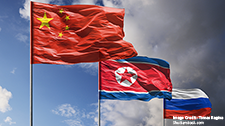Sino-Russian cooperation in new technologies
Sino-Russian technological cooperation has emerged as a defining strategic partnership since the early 2000s, forged by mutual desires for technological independence, economic diversification, and unified resistance to Western dominance. Their collaboration now encompasses artificial intelligence, quantum computing, space technology, nuclear energy, telecommunications infrastructure, and semiconductor development—technologies that have become weapons of war as Europe finds itself in de facto military conflict with Russia.
The alliance leverages complementary national strengths. China provides vast manufacturing capacity, market scale, and rapid commercialization capabilities, while Russia contributes cutting-edge theoretical research, aerospace expertise, and cybersecurity innovations. Their joint initiatives span collaborative space missions, shared 5G and next-generation network development, coordinated AI research programs, and unified quantum technology advancement.
Recent geopolitical tensions have accelerated this partnership as both nations aggressively pursue alternatives to Western technology suppliers. Yet the alliance confronts substantial obstacles: persistent technological gaps with Western innovations, tightening export control restrictions, and the delicate balance between cooperation and competition within their own bilateral relationship.
This technological alliance fundamentally reshapes global innovation ecosystems, reconfigures supply chains, and transforms the geopolitical architecture of technology governance. Understanding its trajectory becomes essential for grasping contemporary international relations and technology policy. This project examines the profound consequences for the European Union, its member states, and allied nations as they navigate this new technological Cold War.

